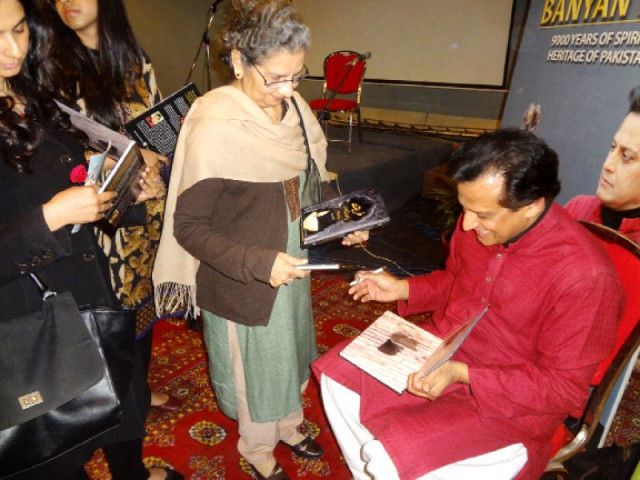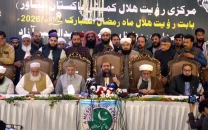The Banyan Tree: Film highlights region’s heritage
Documentary defines spiritual quest to connect with one’s religious roots.

The film is shot in Taxila, Harrappa, Lahore and the Potohar Plateau. PHOTO: HUMA CHOUDHARY/EXPRESS
This is the premise of a documentary, “The Banyan Tree”, launched by Mehergarh in collaboration with Black Box Sounds at Lok Virsa on Wednesday evening.
Written by Dr Kamran Ahmed, the film follows his spiritual quest as he identifies and reconnects with the region’s spiritual roots. He starts off by narrating the story of the tallest and widest tree outside Islamabad where Buddha is believed to have meditated.
He informs that the tree was burnt down by members of a nearby seminary who alleged that Christians worshiped at the tree. Ahmed clarifies that it was actually Buddhists who worshipped there. Some charred pieces are all that remain of the enormous trunk, but the roots have survived and this is the story of our own spiritual roots that go back some nine thousand years, he adds.
Shot by Black Box Sounds, the film takes one through serene landscape in the scenic Potohar Plateau, archaeological sites of Taxila and Harappa as well as religious monuments and shrines in Lahore. Parts of the film have also been shot inside the Lok Virsa museum, showcasing traditional architecture and artefacts from a long-forgotten era.
Lok Virsa Executive Director Dr Fouzia Saeed welcomed guests and reiterated her commitment to promote traditional culture and heritage. “Our mandate is to promote culture and heritage but I always make a distinction that we promote the progressive aspect of our living culture. Heritage continues to change and it needs to respond to the current affairs, otherwise it just gets stale,” she added.
“This is the story of our own spiritual roots that go back 9,000 years,” said Ahmed, adding he wanted his children to live in the peaceful, pluralistic and tolerant society that he had grown up in.
To this end, he also launched a book “Tareeqat” which follows a similar path of spiritual enlightenment.
Black Box Sounds Director Tauseeq Haider said he firmly believed that his father did not hand over the best Pakistan to him; as he had a better Pakistan. “So it is now my and my team’s responsibility to hand the best Pakistan to our coming generation and this film is a step towards that.”
Published in The Express Tribune, February 27th, 2015.



















COMMENTS
Comments are moderated and generally will be posted if they are on-topic and not abusive.
For more information, please see our Comments FAQ